#I'm making gay with Middle Age agenda
Text
Barbie and Their Babygirl
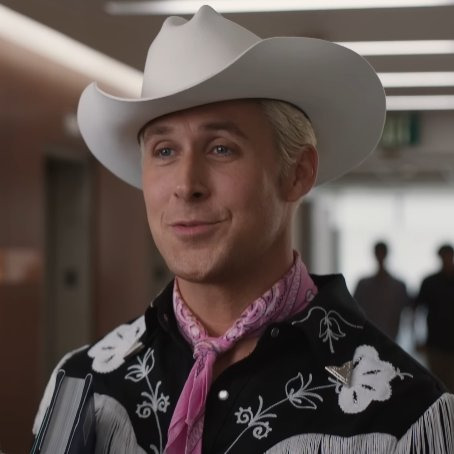

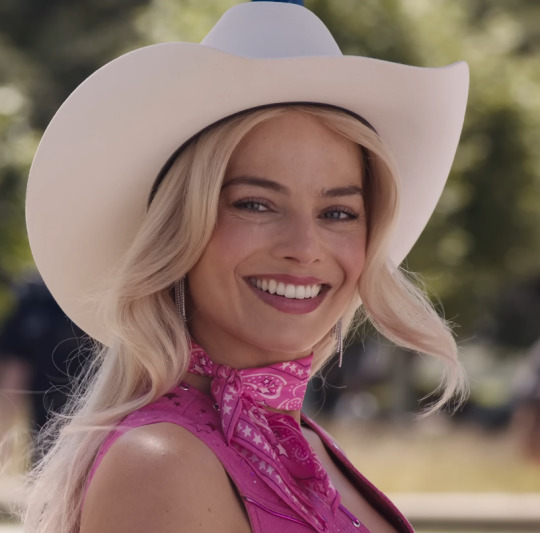




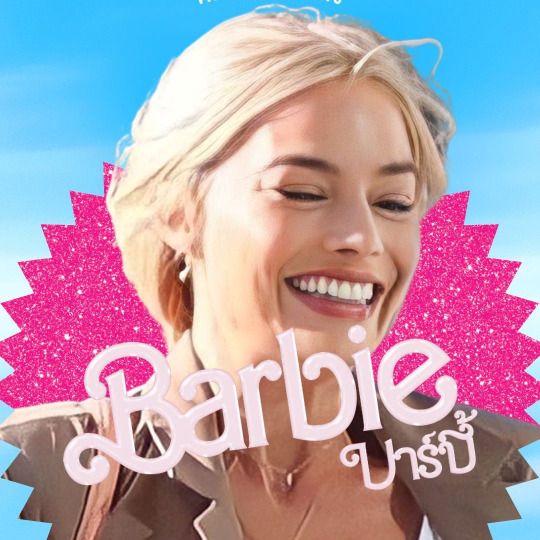

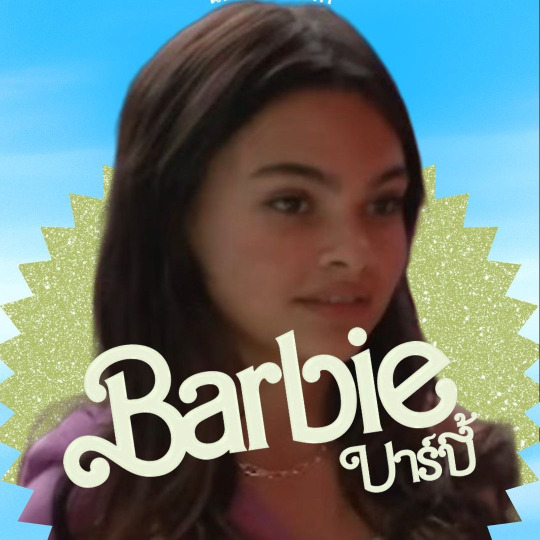
#barbie 2023#barbie film#barbie#gloria#barbie ken#danny#barbiegloria#Kendan#I'm making gay with Middle Age agenda#ryan gosling#giovanni ribisi#margot robbie#america ferrera#jack champion#ariana grande
59 notes
·
View notes
Text
Okay so, there is a thing twitter does and you sometimes see it here, when people are professing that a certain block man relationship is platonic, and/or that anything else is boundary breaking. The stance is that you love the platonic relationship so much, and anything else is "weird". So you're defending from the weirdos.

And the thing is, I am not intending to say that you personally have to be comfortable with romantic or sexual relationships when it comes to the block men. If you go "y'know this is not for me", that is 100% fair. That's why I do think that appropriate tags are so important, so that you can curate your space. However. This specific interaction has been sitting in my head for days.
First of all like slimarina has repeatedly rped gay sex on stream, artists drawing them kissing should not be getting death threats on twitter. Second of all— why is it weird. Why are you saying specifically that a relationship between two men is weird or bad or unclear inappropriate? Do you know what you sound like when you say that?
Cause it isn't just "keep the nsfw away from the minors", which is fair and based. Tag that shit. People also acted like this with beeduo when all we were talking about was handholding and kissing, which a) they were making jokes about lap dances on stream, I don't think a kiss is too far, b) handholding your beloved is a behaviour that shows up in humanity in *middle school*. Like this was the type of romance that would show up in disney movies, and people would be like "I am protecting the streamers from the weirdos" by saying that this is abhorent and you're a degenerate if you think about it!
Cause the thing is, when you are saying that queer romance is somehow inappropriate for minors, or saying that a "gay couple" is incompatible with the concept of nsfw without being weird, this is indistinguishable from homophobia. It is literally a homophobic talking point, that gay romance is inherently sexual and inappropriate, and that gay sex is inherently weird and bad. This is a thing politicians are using to push regressive political agendas.
A lot of people are not comfortable with nsfw and that is fine, but when you are making broad statements about sex and romance In General, you start to fall into some traps where like, literally I have heard these talking points from evangelical christians telling me that sex would make me inherently unclean and broken. I am begging people to draw a distinction between "i don't want to see that" and "all of that is bad/weird/inappropriate/should never be talked about in public".
Uncomfortable with slimarina nsfw? Fine. I don't necessarily want to see slime physics sex either. Saying that all engagement with nsfw between two adults who are enthustically consenting and having fun with it and specifically asking for tiktok edits of the sex scenes but happen to be guys is weird and needs to be defended against? FOLKS. You literally sound like a conservative politician.
Like something like 98% of the population is sexually attracted to other people, at a low estimate. And that is FINE. That is how humanity works. We have social rules about how to navigate that, but it's not inherently weird or dirty or inappropriate to be attracted to people, or to think or talk about sex, or to have sex! Average age of having sex for the first time in north america is 16! People are having sex and that's FINE. I'm not but like, sure I'll read stories that include that as an element, because I'm an adult and it's part of the human experience. I also read stories that don't have sex. Neither is morally superior or less weird than the other just by virtue of if there's sex in it or not.
So like, man. We have GOT to stop assigning anything sexual as bad and wrong. It's just a thing that adults do.
209 notes
·
View notes
Text
Here's a queer reading of Resident Evil Village chock-full of spoilers. TL;DR: They're all queer.
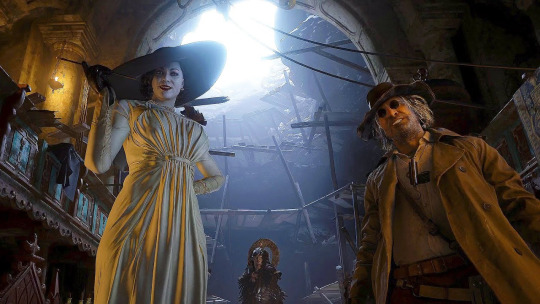
POV: Two gays (+ Mother Miranda but who cares about her) looking at you, another gay.
So horror is inherently queer right, like horror is about fearing the Other, and you're meant to identify with the vanilla, average Winters family (1 dude, 1 woman, 1 baby aka the perfect developing family) with Ethan in particular acting as the courageous papa bear who'll do anything to protect his kid, and Mia being the nice stay-at-home woman who cooks dinner and reads stories to Rose.
And then the gay agenda Mother Miranda kidnaps Rose.
So let's take a look at her family, shall we?
Lady Dimitrescu is a huge, terrifying monster with claws who hates men and has a bit of a temper. Or, she's a beautiful and incredibly charming lady with lesbian tendencies who's annoyed that a non-queer person invades her safe space and you'd be glad if she stomped on you. Repeatedly.
Heisenberg meanwhile is a sly, shady man awkwardly dressed as a cowboy. Or, he's a leather daddy who finds Ethan's body ~interesting~ and tries to strike an alliance with him and GOD you wish you could accept his offer so that he'd break your bones when he inevitably betrays you. As an aside and I'm sure this doesn't amount to anything (😏) but do you know who became cowboys? Queer people, among others. Getting away from society? Not a very cishet thing to do, nuh-huh. Also, his love of theatrics? His fruity demeanor? Werewolves???? Nah, the dude is queer, no question.
Donna is a creepy woman who loves terrifying dolls. Or, she's a talented dollmaker with niche interests. I'm sorry, tbh I don't care much about her character but I'm sure there's meta out there or something.
Moreau's a big fish man whose behavior is generally grotesque. Or, he's a just pathetic dude who seeks his mother's affection and really, don't we all ?
Anyway so in RE7, the Baker estate is quite respectable in size but not in aspect, and the Baker family mostly behaves like caricatures of rednecks (the voice acting, the father being the authority, the overall crassness of everything, complete with the troublemaker son). Contrasting to this, both the Winters and Miranda's family show nobility.
Ethan, Mia and Rose live in a very nice house and they exude softness in their beginning scene.
Dimitrescu's nobility is more extravagant and imposing, just like herself. She's got that beautiful castle from the Middle Age, her cruelty retains self-control as opposed to her daughters (until the very end where she becomes a very angry dragon, understandably so) whom she very much loves. She's noble, but she's still *queer*. She's still the enemy, the Other.
Heisenberg's nobility doesn't come from a fancy castle, but from a more traditionally masculine aspect: power. He commands the werewolves, his factory is the biggest level of the game–especially if you count the stronghold before that–, like clearly Heisenberg's constantly trying to show he has the biggest, and Dimitrescu is more than happy to challenge his manhood by questioning his authority.
And then, oops... Turns out that Ethan has been queer for a while. He's actually been a fungus for most of the duology. He's been The Other, unconsciously masquerading as The Normal. Eveline (= his subconscious) knew, of course, and she calls him out. Then Ethan returns to "life", makes sure his daughter is safe and grows up to become a BSAA agent, goddamnit Chris!!! and lets the Mold (queerness) take him.
Of course Capcom didn't expect for people to latch onto Dimitrescu (and to a lesser extent, Heisenberg), it's been pretty clear that they didn't expect people to feel anything other than your usual anxiety and maybe fear around her.
The thing is, Dimitrescu's having fun. While Ethan, symbol of normalcy and cishetism, has a hard time getting through the game, she's been absolutely thriving for centuries and doesn't see Ethan as much of a threat for a while. She loves this aura she gives off, she loves her little family (her daughters), she loves scaring "normal people" and generally revels in luxury. Good for her!
Heisenberg is also clearly having fun. He's not a queer man with a tragic backstory who hates himself, nah, he orchestrates his own fun (game night with his werewolf mates with a special guest: Ethan!), he puts on a show and clearly enjoys his theatrics... Look, he's gay. He's a thriving gay, even more than Dimitrescu actually because there's still a certain unease in her, with her strained relationship with Mother Miranda, and the way she has to duck to go through doors in her own castle... Meanwhile Heisenberg is just happy to stir shit up. Gosh, what an icon.
So yeah Resident Evil Village is essentially about how non-queer people feel threatened by queer people, and how the latter have a lot of fun. I don't find the Four Lords creepy at all. They go from pitiful (Moreau) to mysterious (Donna) to absolute bliss to see on screen (Dimitrescu and Heisenberg).
You could also probably make some parallels between Heisenberg's Gay Pack of Gay Werewolves and Chris's Gay Pack of Gay Soldiers that's literally called "Hound Wolf".
The Queers are thriving, folks.
#Resident Evil Village#Karl Heisenberg#Lady Dimitrescu#Queer reading#Gay analysis#Chris Redfield#Ethan Winters#queerness vs. normalcy#resident evil
24 notes
·
View notes
Text
Q: Hank, so you're saying Americans basically make themselves into contorted, idiotic total freaks because they're cucked into knowing no America other than what's best for the straight white man and his inability to dominate 100% of life here instead of the 90% of life he dominate.
A: True, they're really that cucked. Perhaps it's best that Christina runs with her spare blanket and pacifier to the straight white man and tries to say "Wwe Wuv U SOrry Some Fwaggot Maybe Hurt Ywor Feeligns I Even Made U A Chwaracter in my Strworwy' because she's shown herself to be so massively cucked that this is a probably as 'progressive' as her purple middling self can possibly get.
and that form of ultimately conservative identity politics -- well, it's play at home on her computer, she's not an adult so she'll never even encounter these straight whites she's hoping to protect and provide a safe space for.
There's a massive fuckton of people who vote Democrat like her tho and it's really tedious. For example, even with idiot Joe Biden as president, there was that familiy i went out to lunch with -- conservative democrats -- who are so unhappy that the party seems too diverse for them and is respecting the 'wrong' people (the right ones are always always sttraight white) and it's like
no heart or understanding that i'm a gay man thrown out of society by people such as themselves or always given the opposite of the benefit of the doubt
no actual human connection or understanding of any situation
just programming STRAIGHT WHITE
STRAIGHT WHITE
HIS PRECIOUS FEELINGS
HIS PRECIOUS FEELINGS
THAT"S HOW U WIN
THATS THE AGENDA
and it's like, folks, this is babytalk. i cannot be babies like you. i cannot be Christina or my Dad, who expect me to dawdle along saying nothing whatsoever because everything has to revolve around the straight white man's feelings from these assholes -- these assholes who threaten me with murder -- that's an absurd double standard 'everything around the white man's widdle feelings plus for you, Hank, threaten with total exclusion or murder at all times'.
there is no 'fuck you, you're a total toddler' hard enough for these babies to hear, and even if you blew an eardrum out of them, they'd still remain deaf dumb blind and conservative, as they are.
i cannot keep america in the baby realm forever. you have to grow the fuck up at some point
or you have to realise the consequences of being an idiot cuck shitbag is that i think you're a total idiot cuck shitbag
anyhow, this whole family later got into the stock market cuz of me
that's typical, they think 'gee if some idiot gay guy who thinks penis matches penis can handle a task, maybe i can handle a task'
but i doubt, you know, they learned anything about life all that much other than some kiddie thing like 'gays maybe not so bad'
i don't have the patience for toddler America
when these idiot cuck shitbags want to get back to me about how they threated a 6 arm battle to a straight white man or laughed at a straight white man and said a 10 yr old was immature or backstab talked a straight white man on their blog or threatened to murder a straight white man or scheduled a straight white man for corporate detachment or told a straight white man he needs to have gay sex in order to get his dad in his life
they can get back to me
but they never ever ever ever will
cuz they're deeply cucked cowards
and aside from being cucked, they simply wouldn't have the courage even if logic could undo their cucking
a shitbag idiot cuck gonna shitbag idiot cuck until it drops dead of old age or other factors someday and that's america, kids
what a shitty fucking country
land of the squirming spoiled brat on behalf of the straight white man's welfare
land of the 'trapped inside one's daddy's house quite literally but bleating FREEDOM every 24 hours like a broken clock'
0 notes
Text
No because the length people go to justify their racism online is funny. Especially when it comes to casting roles in movies, (European stories mostly). Was taking about Brandy's Cinderella from 1990s. Amazing remake of the fairytale, including the diversity. And here comes this middle aged white man with a gray beard and MAGA hat, talking about "Cinderella is not black, what if we made a white MLK movie." Obviously clapped back immediately and responded. Cinderella isn't real, MLK is. Of course, without missing a beat another person responds. "What about Hamilton, y'all loved that stuff. So until then I will be waiting for a white MLK movie."
Which brings me to this post, making white characters POC or gay is not always some agenda that is out their to attack heterosexuality or whiteness. It never was. It is simply portraying a well known character in a different light. No one said Cinderella had to be portrayed in one way, and changing her appearance does not take away from her story because her being black or even a different sexuality does not change the idea of fairytale.
As for historical figures. When it comes to the musical Hamilton. Lin himself decided to make roles POC because he wanted an American musical to look like America. The founding fathers being portrayed as POC in the said musical does not take away from the idea of what musical was about or what we learn from that musical. Making MLK a white man does. The same MLK that grew up in a segregated America and fought so hard until his death just for black people to have equal rights. Him being white in that time period if a movie where to happen, takes away the whole purpose.
Photo proof below in case the racists in the comments think I'm lying about this. Either way I needed to get this off my chest.
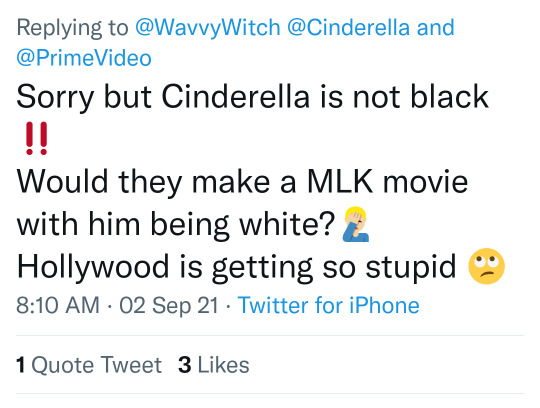

#black community#black tumblr#black lives matter#blm#poc voices heard#blacklivesmatter#stop asian hate#representation matters#everyday feminism#liberal feminism#womanist#poc lgbt blogger#blm2021#blm movement#black is beautiful#end racism#end homophobia#lgbt love#love wins#latino lives matter#black history#politics#us history#i needed to get this out of my system#please dont attack people mentioned#tw racism#hamilton#hamilfan#mlk jr#civil rights
14 notes
·
View notes
Text

Hello! I moved from my old blog, @dianethus to here, you can probably call this a re-intro!
Diane | 18 | Filipino-Chinese | She/They | Pansexual | Scorpio | xNTP | Neurodivergent | Psychology Major | Graphic Designer | Practicing Wiccan
I’ve been trying to write since I was around 12 years old with silly little k-pop and percy jackson fanfics. Even though I cringe now whenever I think about the things I wrote, I still believe it was a necessary phase that all writers have to go through to become better.
I mainly write for the #OwnVoice movement that focuses on the South East Asian experience and especially the experience of being queer in an Asian environment. I aim to give the queers of Asian history whose stories never got to be told a voice. I write to expose the world to Philippine Mythology and the stories passed down from ancestor to ancestor. I also aim to conjure up nostalgic imagery in the readers' minds.

low fantasy. I'm not that really good at world building but I'm in love with the idea of everyday magic.
supernatural.
historical.
angst. I'm SORRY but writing and describing pain is a different kind of joy for me.
found family. I'm gay.
cosmic motifs.
enemies to lovers. oh for someone to see all my worst parts and still fall in love with me. also consider: childhood friends to enemies to lovers.
religious trauma & guilt. I went to a catholic school what did you expect?
The Revolution Will Not Be Vilified.
Evil Is Sexy.
Trapped In Another World. I want to be Isekai-d so bad.
Song Fic. Most of my titles are actually song lyrics or my basic outlines follow the structure of a song.


“Slender Aphrodite has overcome me with longing for a girl,”
Somewhere In Limasawa Street is a queer historical fiction story set in 1898 when the Philippine-American war is just beyond the horizons and 19 year old mestiza, Lucena Candella is in the middle of a war with herself. Sheltered and painfully aloof, she meets brave but brash, Urduja Kalangitan, who is as emotionally aware as a rock and who happens to be the Revolutionary Army's best gunman—maybe that's what pulled quiet Lucena to her.
Between paper planes, porcelains, and battle scars, Lucena slowly learns to love, and that scared her. It scared her because she wasn't allowed to love that woman with the scarred smile and wild hair.
This is my main WIP and my passion project. I really wanted to write something that I can dedicate to the queers of history, the indigenous and people of color whose queerness is never told.
The title is a reference to Limasawa Street by folk pop band, Ben&Ben, I actually used the album and a few singles as inspiration for the plot.
WIP Playlist. This story will be unapologetically Filipino.

“Be angry but do not sin; do not let the sun go down on your anger, and do not make room for the devil,”
The Devil’s Choir is a low fantasy story following the adventures of seven unlikely friends who just want to go apeshit and run away from their shitty town. That is until they’re thrown into a you-need-to-save-the-whole-world mess without their written consent. Lucifer and Dionysus show up at their door step, dragging them head first into an abyss that even the Gods refuse to fall into. A war between the golden age and the future, it’s now up to this peculiar gang to save the world from the real threat.
The seven deadly sins but make them moody teenagers. this story has gone through so much revising for years! Found family, enemies to lovers, and unwilling heroes? check.
Unintentionally a copy of American Gods. It was too late until I realized the plot was kind of similar to American Gods. Help.
WIP Playlist. I smell chaos, don’t you?

“It is true, we shall be monsters, cut off from all the world; but on that account we shall be more attached to one another.”
Manila Encounters is a paranormal urban fantasy story unfolding right in the pearl of the orient seas. When the clock strikes 3 AM and the lights of the skyscrapers turn dark—when the city sleeps, the monsters roam free. Deep between the alley ways of Manila city, look out for kids with a certain glow and bite behind their smiles. Look for the ones with sunkissed tans who speak in tongues. Look for the ones whose feet barely dip into murky bay waters and fingertips grazing moonlight.
A dummy’s guide to Filipino folklore. Manila Encounters was inspired by a hashtag on Twitter of the same name where people wrote their own twist to Filipino urban legends and folk stories.
Oh great, another Percy Jackson rip-off. the main characters are demi-gods or descendants of Gods. Original, I know.
WIP Playlist. driving at midnight sort of vibe.

"You may forget but let me tell you this: someone in some future time will think of us."
And I Love her is a queer romance story about a girl who just recently moved into an old but well maintained cottage in some seaside town in Europe—and she finds in the middle of dusty furniture and underneath cobwebs, a rotary telephone sitting there unused for decades. It rings unexpectedly one day and what greets her is a soft voice belonging to someone who lived 60 years ago.
a dreamnotfound fanfic inspired this. and the South Korean horror film, The Call.
gay yearning agenda. so much yearning. so much. I’m projecting.
WIP Playlist. My pain fits in the palm of your freezing hand, taking mine, but it's been promised to another

A selected list of fics from my AO3 account. It’s gay.
I drowned a long time ago. Sakusa Kiyoomi isn’t in love. He’s devoted. Serial Killer AU.
Maaaring bang magkunwaring akin ka pa? A Tagalog Haikyuu fic based on the movie, Camp Sawi.
Marupok na puso ko. A Tagalog Haikyuu fic where they do the Filipino thing and get drunk.
My good puppy. My first try at writing smut. Jesus Christ.
Be my mistake. Where Kuroo Tetsurou calls up Tsukishima Kei one last time.
Make it hurt. The two times Atsumu Miya saw the entire universe behind Sakusa Kiyoomi’s eyes.

I still have a lot of stories that I hope to finish, I find it hard to discard or erase story ideas. So I hope one day, you can all watch me finish this list.
We Don’t Belong Here / Viva La Filipinas / Luna De Sangre Conspiracy / Lilith and Lysander’s Guide To Immortal Godparents / Lonely Hearts Club / A Lady’s Guide to Princes and Principles / Attack Block / Empty Thrones / A Double Take / Stupid Cupid / Idle Town / Alice? / The 30 Day Deal / Lost Stars / The Apocalypse Program / Heartstrings / Disastrously Danae
#Writeblr intro#writeblr#writers of tumblr#writers on tumblr#about me#introduction#writeblr wip#intro#HI#PINNED.#wip intro
16 notes
·
View notes
Text
Since people have a hard time getting this...
Lemme give you an example of explaining sexuality to a kid.
"Hey, I'm Carl, and this is my boyfriend, Mike. We are both men, and we both love each other just as much as any other couple would."
You can even take out the second sentence, because honestly, kids barely care about who you're dating. They're still saying "Eww" to their parents kissing, for heaven's sake (I even say ew to my mom and dad kissing when they were together). They certainly don't care all that much about who's dating who, they only start caring when they're in middle school because they think it's a big deal.
It is not a big deal if a kid sees a two men kiss, or if two women kiss.
(For any middle schoolers reading this, who you're dating does not matter really. I know you probably heard this before, but it truly isn't a big deal. So if you got dumped, cheer up, m'kay? You're still growing, it's not the end of the world, you know. If you still want to date in the future, go on ahead. Even if you're still hurting, things [as cliché as it may sound] will get better, and easier to. Hang in their, friend. )
Here's an example of explaining sex to kids looks like.
(BTW, you should really only explain this if they ask. Or if the kids are 10+ years old. And as a bonus, add some safety information in there as well.)
"You see, when two people are very interested in each other, they start to be a lot more intimate with each other. They go somewhere private and start touching each other's privates with their consent.
"You can't do this at your age, but if anyone tries to touch your privates or try to make you touch their privates, let me/us know immediately— because what THEY are doing is very bad. In fact, tell me/us if anyone is making you uncomfortable, because this is important.
"It does not matter if they're family or friends, or even people you trust, you need to tell me/us. They will get in trouble, but this is not a bad thing, and you will never be in trouble for anything that happens afterwards.
"We/I just want you to be safe.
"You're free to ask me/us anything, and [we/I]'ll try our/my best to explain. You don't need to be scared when asking me/us, because you're just trying to learn, and we will never fault you for figuring yourself out."
Either way, completely different, but still very important— and not the end of the world.
If you can't handle the idea of the "gay agenda" informing kids of what's completely natural, that's on you. If you can't bear the thought of kids knowing what sex is and what to look out for just in case some predators wants to try something, that's on you. Because either way, these kids will learn.
It's up to you whether they learn in a safe environment, or in a potentially dangerous one.
#Think of the children-- the Children!#long post#I honestly am just straight up tired of people trying to use the 'sex' in sexuality to their advantage#You're not finding a loophole#you're not clever.#You are just homophobic. End of story#I keep seeing people going But are they even thinking of the children?#Or are they just trying to think of ways to justify themselves?#Sorry#This is mostly brain barf#But I am still tired#sexuality vs sex
0 notes
Text
Since 9/11, US Muslims Have Gained Unprecedented Political, Cultural Influence
— By Steve Friess | 09/01/21
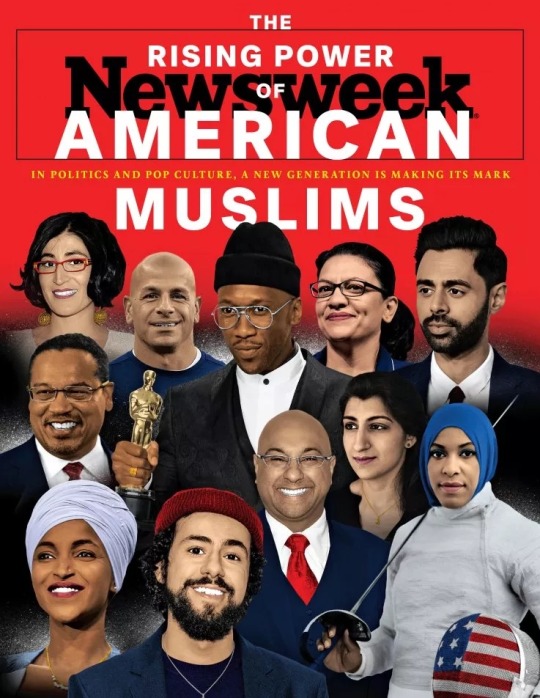
It's been an impressive 2021 so far for Muslim Americans. The U.S. Senate, that bastion of partisan gridlock, overwhelmingly confirmed the nation's first Muslims as a federal district court judge and to chair the Federal Trade Commission. Legislatures in five states swore in their first Muslim members, including a nonbinary, queer hijab-wearing representative in, of all places, Oklahoma. Three Detroit suburbs are poised this fall to elect their first Muslim mayors. The New York Jets tapped Robert Saleh as the first Muslim head coach of any American pro sports team. CBS premiered, then renewed The United States of Al, the first broadcast network sitcom with a Muslim lead character. And Riz Ahmed, star of Sound of Metal, became the first Muslim nominated for an Oscar for Best Actor.
"Everywhere I look, I see firsts happening," says MLB Tonight sportscaster Adnan Virk, who in 2012 became the first on-air Muslim host on ESPN.
As the 20th anniversary of September 11 approaches, the recent rise of many Muslim Americans to positions of power and influence—in Washington and in statehouses, on big screens and small ones, across playing fields and news desks—is a development that few in the U.S. would have predicted two decades ago, Muslims included. In the immediate aftermath of the terrorist attacks by the radical Islamic sect Al-Qaeda, anti-Muslim hate crimes exploded and the ensuing global "war on terror" to root out jihadists created a "climate of discrimination, fear and intolerance," as one think tank described it, that surrounded people of Islamic faith in this country and lasted for years. Then, just as heightened anti-Muslim sentiment in the U.S. seemed to be subsiding, Donald Trump was elected president in 2016 on an agenda overtly hostile towards Muslims, and revved it up again.
It is the experience of coming of age in this post-9/11 environment, experts say, that drew a new generation of young Muslims to activism, and motivated them to use their voices in political and cultural arenas to debunk misinformation. That they've found a receptive audience beyond the Muslim community suggests to some observers that many Americans now understand that the anti-Islamic rhetoric they've been served in recent years is based on myths and untrue. As Minnesota Attorney General Keith Ellison, who in 2007 became the first Muslim sworn in as a member of Congress, tells Newsweek, "The haters have been proven to be liars."
Maybe. But trend data suggests the answer is not that simple and anti-Islamic sentiment remains a factor 20 years after 9/11. Anti-Muslim hate crimes, for instance, are second only to anti-Semitic incidents, FBI statistics show. And in a Gallup poll, one-third of Americans, and a full 62 percent of Republicans, said they'd never vote for a Muslim candidate for president, by far the least support for people of any religion in the survey.
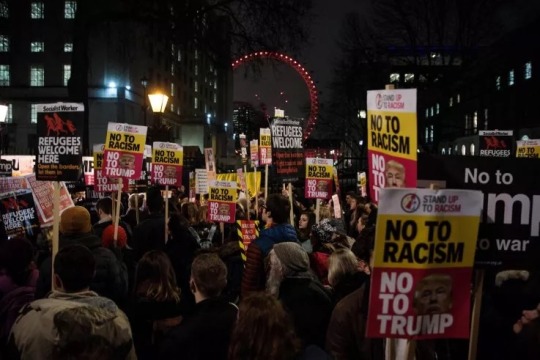
Anti-Islamic sentiment remains a factor 20 years after 9/11. President Donald Trump's ban on travel from seven Muslim-majority countries didn't help (here, protestors make their feeling about the ban known). Jack Taylor/Getty
Is the recent rise of Muslim Americans to positions of prominence a temporary surge forged during the backlash of the Trump era or a permanent change in American consciousness? Are the constant, often viciously personal attacks on Representatives Ilhan Omar of Minnesota and Rashida Tlaib of Michigan—the most famous Muslims in American politics as well as two of the nation's most strident progressives—a last gasp of Islamophobia or proof that, in some quarters at least, it's never going away? If, in fact, the political and cultural shift toward Muslims has staying power, what will the impact be?
The answers are still unfolding. "Muslims are becoming more a part of the American tapestry, but they are still a marginalized group," says political scientist Youssef Chouhoud of Christopher Newport University in Newport News, Virginia. "The question now is, OK, so you have these Muslims in public office, in the public eye, on commercials, on TV shows. But does it stick? That's TBD."
Identity Forged in Adversity
When the attacks by Al-Qaeda occurred 20 years ago, the makeup of the Muslim community in the U.S. was much different than it is today: significantly smaller, older, more conservative, less organized, and made up of more Black Americans and far fewer recent immigrants.
In 2001, roughly 1 million Muslims lived in the U.S., according to the Association of Religious Data Archives, versus 3.5 million recently. As a group, they formed a solid Republican voting bloc, with the immigrant community in particular drawn to the GOP's messages of self-reliance, small government and conservative social policies on issues like abortion and gay rights. George W. Bush won 72 percent of Muslim votes in 2000, according to the Council on American Islamic Relations, or CAIR; other polls put the figure lower by still showed a big GOP tilt. After 9/11 that support plummeted, with just 7 percent backing Bush in his 2004 face-off with Democrat John Kerry.
Party affiliation wasn't the only shift among Muslims in the U.S. in the post-9/11 years. Before the attacks, Muslim Americans seldom saw themselves as a single community bound by a common faith as much as a disparate collection of distinct ethnic groups—Iranian, Iraqi, Syrian, Pakistani and Egyptian among many others—that kept to and fended for themselves, says Niloofar Haeri, chair of Islamic Studies in the anthropology department at Johns Hopkins University. The other large bloc of Muslims in the country were Black Americans who saw the Islam of Malcolm X and boxer Muhammed Ali as both a religion and a political identity used to advocate for the poor and marginalized. That application of the faith, says Haeri, unsettled many immigrant Muslims who came to the U.S. to escape theocracies.
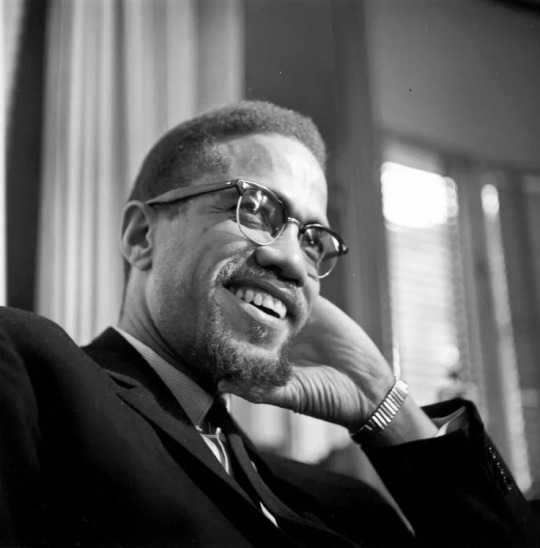
Many Black Americans saw the Islam of Malcolm X (pictured here) and boxer Muhammed Ali as both a religion and a political identity used to advocate for the poor and marginalized. Michael Ochs Archives/Getty
Then came the ferocious backlash after the September 11 attacks, marked by a wave of physical and verbal assaults on Muslims and anyone who "looked" Muslim. According to the FBI, there were 28 reports of anti-Muslim hate crimes in 2000; in 2001, that number had climbed to nearly 500. Although then-President George W. Bush had initially urged people not to take out their fear and anger Muslim Americans, his administration later went on to surveil mosques and college Muslim organizations looking for terrorists and invaded Iraq in 2003 on later-debunked claims of involvement with Al-Qaeda and plans to build weapons of mass destruction. Many Christian religious leaders during this period made harsh anti-Islamic remarks as well.
Conservative politicians also spent several campaign cycles in the post-9/11 period ginning up public fear that Muslims wanted to impose Sharia in America—that is, turn religious strictures of Islam into laws akin to those of some Middle Eastern theocracies. "For a while Republicans were all about banning Sharia law, which doesn't exist anywhere in America that I'm aware of," Ellison says. "In another way, every Muslim does 'Sharia law' every day. When I pray, that's Sharia. When I fast for Ramadan, that's Sharia. When I don't eat pork, that's Sharia. And these are the people who say they defend religious freedom."
All of this stoked fear of unwarranted reprisals among Muslim Americans and helped forge a generation of young activists who are now winning political office from city council to Congress, Chouhoud says. By 2007, 84 percent of 12- to 18-year-old Muslim Americans said they had experienced at least one act of anti-Islamic discrimination in the prior year, a New York University study found. In 2009, more than 82 percent of Muslims in the U.S. reported feeling unsafe, an Adelphi University survey found.
Muslim Americans faced a choice: Grin and bear it or band together and respond, Haeri says. "One of the most consequential changes that happened in various Muslim communities post-9/11 was that those Muslims who were not religious and did not identify as Muslim before 9/11 were suddenly being treated as Muslims whether they wanted to be or not and were asked questions about Islam," Haeri recalls. "Muslim communities filled with newly self-identifying Muslims. There was a lot of soul searching: Why are we shunning this heritage entirely?"
Meanwhile, more religious Muslim Americans, especially the ones who fled autocratic regimes and failed economies, baffled over questions about their patriotism. "We had to redefine ourselves and push back against injustice—from our country, from the government, from the media, from popular culture," says Nihad Awad, co-founder and executive director of CAIR. "We felt the pain about 9/11 that everyone felt but more pain than many because we were blamed for what happened—something we had nothing to do with."
Adversity fused a far-flung gaggle of nationalities into a coalition of necessity, says Democratic Representative Andre Carson of Indiana, who in 2008 became the second Muslim elected Congress. "This role was paved decades ago by the indigenous African-American Muslim community, but 9/11 allowed the immigrant Muslim community to see that the African-American Muslim community was right all along in calling out racial injustices, calling out governmental excess as it relates to violations of civil liberties and spying on fellow U.S. citizens," says Carson, who is Black.
At the same time, throughout the Bush and Obama years, the pace of immigration to the U.S. from Muslim-majority nations in the Middle East, Asia and Africa surged. Between 2002 and 2016, the number of Muslim refugees accepted into U.S. rose 627 percent—from about 6,000 a year to almost 40,000—which, along with the highest birth rate of any religious group, caused the sharp increase in the Muslim population. The influx has since stopped, as the Trump administration cut the number of refugees accepted into the U.S. to an all-time low of fewer than 12,000 in total, almost all of whom were Christian, according to State Department data.
During the period, Muslim visibility in everyday life increased for many because of where they live now: the suburbs. Nearly half of mosques are now in bedroom communities outside major cities, up from 38 percent in 2010, according to a July report from the Institute for Social Policy and Understanding, which researches trends in American Muslim life. At the same time, the actual number of mosques rose dramatically, more than doubling from 1,209 to 2,769 since 2000.
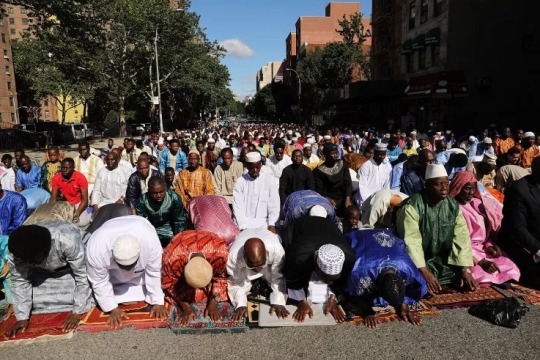
The number of mosques in the U.S. has more than doubled, to 2,769, since 2000. Here, an outdoor prayer event at Masjid Aqsa-Salam mosque, Manhattan's oldest West African mosque. Spencer Platt/Getty
"The age-old pattern of immigrants achieving financial success and moving away from cities seems to be repeating itself in the American Muslim community," ISPU notes.
By the election of Trump, who as a candidate in 2015 called for a "total and complete shutdown of Muslims entering the United States," the American Muslim community was bigger, brasher and uniformly unwilling to roll over. Indeed, observes MSNBC anchor Ali Velshi, Trump's effort to ostracize Muslims, and a subsequent rise in anti-Muslim rhetoric and hate crimes to levels not seen since 2001, lit a spark.
"Something is happening right now," says Velshi, who is believed to be the first Muslim to helm a cable network news program. "It feels like a flourishing of Muslims across industries and across platforms."
Running While Muslim
The arc of Sadaf Jaffer's adult life—from college freshman at Georgetown during 9/11 to the nation's first female Muslim mayor in 2019—offers a useful road map of what has happened to Muslims in U.S. politics over the past two decades and, particularly, recently.
The 38-year-old, who was born in Chicago to immigrants from Pakistan and Yemen, had planned to be a U.S. diplomat and interned at both the State Department and the Marine Corps. But she became increasingly distressed by the anti-Islam sentiment rising across the U.S. and, in 2007, shifted her focus, enrolling at Harvard to pursue a doctorate in philosophy focused on Islamic cultures in South Asia. Her goal: "Understanding Muslim societies better so I could teach about Muslim societies in their complexity."
By 2017, she was a professor at Princeton University so alarmed by the election of Donald Trump that she decided to go into politics by running for a seat on the Montgomery Township Committee, the governing council for a wealthy, fast-growing New Jersey burg of 24,000 residents about 20 miles north of Trenton. Even on such a small scale, the notion terrified her family. "My parents told me, 'Shouldn't we lie low and not draw attention to ourselves right now?' but I felt like if we don't stand up for our rights now, who's to say that we'll even have rights moving forward," Jaffer says.
Jaffer won that seat and, in 2019, was elevated to mayor. Her status as the nation's first female Muslim mayor, she says, was blared in foreboding tones across pro-Trump news sites and Twitter. "That caused an avalanche of hate mail—violent ones, too, about how all of us should be removed from the planet," she says.
It didn't deter her from seeking higher office. This June, she won the Democratic nomination for a seat in the New Jersey Assembly; if she wins this fall, she'll be the first Muslim (and first Asian American) in the Garden State's legislature. She is bracing for some anti-Muslim sentiment but also views her campaigns as a chance to debunk constituents' misconceptions about Islam.
"Those person-to-person connections are really important," she says. "They're about getting to know people as human beings."
If Jaffer wins, she'll follow on the success in the 2020 election that brought the first Muslim legislators to capitols of Delaware, Oklahoma, Colorado, Florida and Wisconsin, and the first re-election of Omar and Tlaib. There are other firsts likely to come this fall too; the top vote-getters in the August primaries for mayor of Detroit suburbs Dearborn, Dearborn Heights and Hamtramck—enclaves with large Muslim populations—were all Muslims.
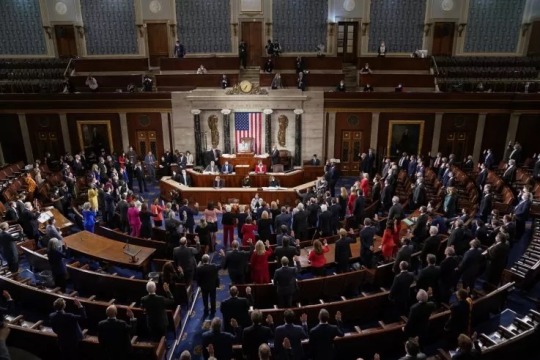
U.S. House Speaker Nancy Pelosi administers the oath of office to members earlier this year, including Representatives Andre Carson, Ilhan Omar and Rashida Tlaib, three of only four Muslims who have served in Congress. Erin Scott/Getty
In all, a record 170 Muslim candidates were on ballots in 28 states in 2020, up from 57 in 2018, and 62 of them won. Exit polling showed that more than 1 million Muslims voted last year, also a record.
"When Trump won, it was a wake-up call for the community," says Wa'el Alzayat, the CEO of Emgage, an organization promoting civic engagement among Muslim American communities.
Also notable: Almost all of these winners are Millennials; Tlaib, at 45 and slightly older than that cohort, is an exception. And most of these Muslim politicans report being the target of some form of anti-Islam sentiment while running.
"They sent out emails connecting me with Ilhan Omar and accusing all the Muslim candidates running across the country of being Islamist or Jihadists," says Delaware state Representative Madinah Wilson-Anton, 27, who ousted a 20-year Democratic incumbent in 2020 to become her chamber's first Muslim. "I was door-knocking and someone was like, 'Go back to your country.'"
Wilson-Anton is not the only Muslim candidate whose religion is used by opponents as grounds to call their qualifications for office into question. In June, GOP Representative Marjorie Taylor Greene of Georgia sent a fundraising email attacking Omar as a "terrorist-supporting member of the Jihad Squad." Sam Rasoul, the first Muslim to run for lieutenant governor in Virginia, was asked in May by a debate moderator whether he could reassure voters he would "represent all of them, regardless of faith or beliefs." And Joe Biden's nominee for deputy administrator of the Small Business Administration, health care executive Dilawar Syed, is in confirmation limbo after two GOP senators objected to the fact that he is on the board of Emgage, the Muslim nonprofit. (He says he'll resign if confirmed.)
In each of these recent cases, though, a broad spectrum from various religious and ideological groups have joined Muslims to object to how the candidates are being treated. An opponent of Rasoul's, for instant, lambasted the debate moderator from the stage for asking the question and social media scorn was so swift that an anchor for the TV station, WJLA, apologized that night on the air. In Syed's case, several Jewish groups are rallying to his side.
"Overall," says Emgage CEO Alzayat, "things are moving in the right direction."
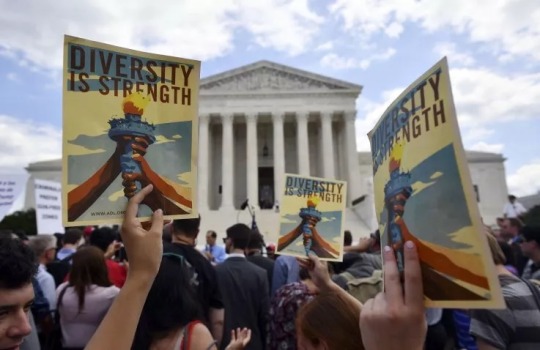
People protest the Muslim travel ban outside of the US Supreme Court in Washington, DC on June 26, 2018. Mandel Ngan/AFP/Getty
A Growing Impact
In office, many of these legislators can point to measures influenced directly by their Muslim backgrounds. Wilson-Anton in June pushed through a new law requiring schools to excuse student absences for religious observances such as Muslim or Jewish holidays. Saqib Ali, who at age 31 in 2006 was elected Maryland's first Muslim state legislator, co-sponsored a law with a Jewish colleague allowing for the licensure of funeral directors who do not embalm bodies because observant members of both faiths do not do so. After someone left a slab of pork on a Muslim family's car in her town, Jaffer started the Montgomery Mosaic, a monthly series of community-wide events to combat hate crimes.
More broadly, Chouhoud says, having more Muslims in the halls of power has changed some conversations. In May, when violence erupted between Israel and Palestine, for example, several Democratic leaders in Washington expressed concern about Israel's aggressive response and the plight of Palestinians. That, he says, was due in part to the activism of Omar and Tlaib. "It's pretty undeniable that the presence of Ilhan Omar and Rashida Tlaib in Congress has given voice to opinions that other Congresspeople in the past have either shied away from or found to be outside of the bounds of what they can actually say, even if they personally held those positions," he says.
Indeed, the congresswomen, both of whom declined Newsweek's requests for interviews, are considered inspirational trailblazers by many within the American Islamic community who see them exploding myths about Muslim women being docile and submissive, Haeri says. Even their differences—Omar wears a hijab, Tlaib is famous for her penchant for swearing—shows "the diversity of Muslim women in a way that surprises and educates a lot of people," Haeri says.
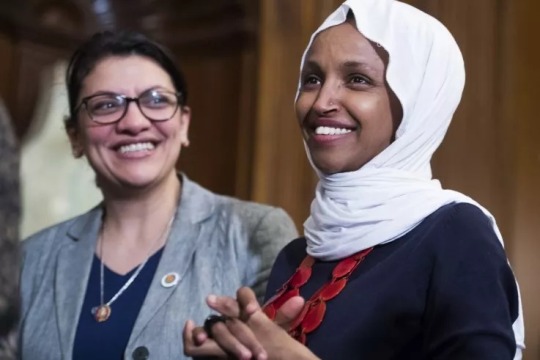
Democratic Representatives Rashida Tlaib of Michigan (left) and Ilhan Omar of Minnesota are considered inspirational trailblazers by many within the American Islamic community. Tom Williams/Getty
Virtually every Muslim elected to state legislatures—and all four who have ever been elected to Congress—are progressive Democrats; Carson, the Indiana congressman, was among the first elected officials to endorse Vermont Senator Bernie Sanders, a Democratic Socialist, for the 2016 Democratic presidential nomination. Sanders held firm to that support four years later; a CAIR survey in February 2020 found 39 percent of Muslim Democrats supported Sanders versus 27 percent for Biden. For many Americans, this alignment defies well-worn stereotypes about Muslims as extreme social conservatives who would not support a pro-choice, pro-LGBTQ Jewish candidate.
Yet the Omar-Tlaib approach is offensive and troubling for some politically conservative Muslims, who object to what they say is an underlying message that Muslims are badly-treated victims of bias. "The experience of American Muslims is one that's overwhelmingly positive," says Omar Qudrat, 40, of California who in 2018 was the first Muslim to win the GOP nomination for a seat in Congress. (He lost by 23 points.) "Many of us reject the victimhood narrative. Do we have problems? Absolutely. But it would be tragic for any young American Muslim to believe all they amount to is being a victim of this great country."
Qudrat and prominent Muslim conservative Zuhdi Jasser defend Trump's policies as being in the interest of national security and praise him for brokering treaties between Israel and Bahrain and the United Arab Emirates. "I'm not embarrassed of my faith," says Jasser, a Phoenix physician appointed by Republican Senator Mitch McConnell in 2012 to the U.S. Commission on International Religious Freedom. "But I understand the mindset of a country that was attacked. Those wounds are still very deep."
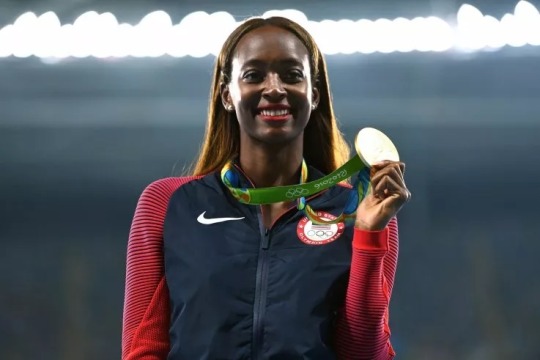
Gold medalist, Dalilah Muhammad of the United States, poses on the podium during the medal ceremony for the Women's 400m Hurdles on Day 14 of the Rio 2016 Olympic Games at the Olympic Stadium on August 19, 2016 in Rio de Janeiro, Brazil. David Ramos/Getty
There is an audience for this view: Trump modestly increased his share of the Muslim vote in 2020 to 17 percent from 13 percent in 2016, CAIR reports.
"Muslims are still a relatively socially conservative population," Chouhoud says. "Certain values and priorities do overlap between Muslims and Republicans. It's just that there's the sense that there is no place for Muslims within the Republican Party."
Jasser maintains the GOP is not as anti-Muslim as progressives believe, citing the confirmations earlier this summer of Lina Khan to chair the FTC and Judge Zahid Quraishi to the federal bench, by wide bipartisan margins. Awad, of CAIR, counters by citing Republican opposition to other Muslims nominated by Biden for positions within the administration, such as Reema Dudin as deputy director of the White House Office of Legislative Affairs, and the long GOP-led delay on Syed's bid for an SBA post.
"To dismiss the rest of the Muslim community's concerns about discrimination, they must be living on the moon," Awad says. "I have not met a Muslims since 9/11 who has not experienced some form of discrimination."
Alzayat of Emgage, for one, hopes the GOP does, in fact, become more hospitable. "There will come a day when we have Muslim Republicans running, Muslim Democrats running, Muslim independents running, and they can have healthy disagreements about policies," Alzayat says. "That would be good for the community and good for democracy."
The Stars and the Crescent
This moment of ascendence for American Muslims is not only about political achievements. Popular culture, too, is seeing a sharp increase in Muslim representation, and the two trends feed each other. Movies and television offer familiarity that helps fuel acceptance, allowing many non-Muslim Americans who don't personally know anyone who practices Islam to see Muslim characters woven into the fabric of everyday life.
"It's an opportunity to create greater empathy for and less prejudice towards Muslims off-screen," says Arij Mikati of Pillars Fund, a Muslim philanthropy that next year will award $25,000 grants to 10 Muslim TV or movie storytellers.
Among those helping to drive this new level of cultural visibility: Ramy Youssef, who won a Golden Globe and a Peabody Award in 2020 for Ramy, a half-hour Hulu dramedy about a first-generation Muslim-American millennial struggling with his faith. Also in the cast for the show's second season was Mahershala Ali, the first Muslim actor to win an Academy Award, for his supporting roles in Moonlight (2016) and Green Book (2018). Disney+ is due this fall to drop Ms. Marvel, introducing Marvel's first Muslim superhero, a shapeshifting, bubble-gum-chewing Pakistani-American teen from New Jersey. And there are past and present recent series like Patriot Act with Hasan Minhaj and United States of Al, a CBS sitcom about a U.S. war veteran who helps his Afghan interpreter move to Ohio.
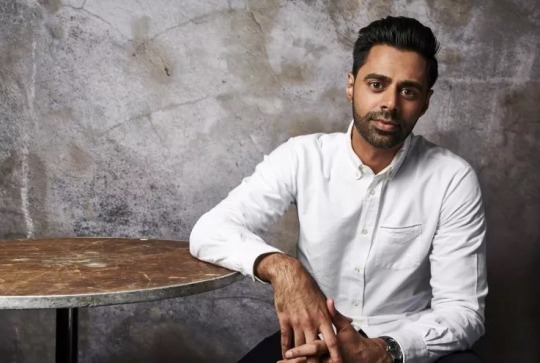
The Netflix series "Patriot Act with Hasan Minhaj" is one of a number of shows that helped to bring Muslim actors and storytellers a new level of cultural visibility. Matt Doyle/Getty
Jaffer, the Montgomery Township mayor, says she's also noticed greater Muslim visibility on kids' shows like Sesame Street and Peg Plus Cat, and it's extended to her daughter's first-grade classroom, where the teacher this spring read a book about Ramadan to students. "Those things seem like little victories, that our celebrations are being recognized as part of America,'" she says. "It's nice, because as a child, I had to explain everything. Just imagine asking a six-year-old to answer, 'What is Christmas?'"
Some Muslim actors and celebrities say they try to advance the ball, talking openly about their faith and cultural identity when asked—or not asked. Adnan Virk, while still at ESPN in 2016, recalls being asked to help anchor coverage after boxer Muhammed Ali died. "One of our producers called and said, 'Hey, we don't know anything about Islamic funerals. Could you come in?'" Virk recalls. "That made sense. They wouldn't know. Open casket, closed casket? What prayers are they reciting? Why is he draped in white? That was a cool moment."
Comic Negin Farsad, a frequent panelist on the NPR quiz show Wait Wait...Don't Tell Me!, says she takes "any occasion I can when it fits organically in the joke to make mention of being Muslim. I do that to let people know that one of their favorite radio comedy shows has a Muzz on it and it's cool."
And MSNBC's Velshi says he intentionally tries to bring on guests and experts who are Muslims and of other marginalized communities to talk about topics unrelated to their identities. "It's the simplest thing in the world to do to break down barriers, to cause people to open their minds," Velshi says. "I want my roster of guests to look like the full breadth of America. Familiarity breeds understanding."
But while there are undeniably more Muslims in higher visibility and breakthrough roles, experts in and outside of the American Islamic community note that the numbers and depictions still don't come close to fair representation. A USC Annenberg study this June of 200 popular global movies from 2017 to 2019 found that just 1.1 percent of the speaking characters in U.S. films and 1.6 percent overall were Muslim, still frequently stereotyped as outsiders, threatening or subservient, particularly to white characters.
"More than half of the primary and secondary Muslim characters were immigrants, migrants, or refugees, which consistently rendered Muslims as 'foreign,'" says Al-Baab Khan, one of the study authors. "Film audiences only see a narrow portrait of this community, rather than viewing Muslims as they are: business owners, friends and neighbors whose presence is part of modern life."
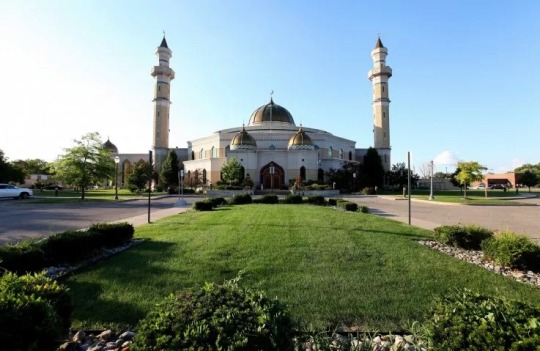
Islamic Center Of America on July 17, 2014 in Dearborn, Michigan. Raymond Boyd/Getty
A Long Road Ahead
The challenges Muslim Americans face in popular culture in many ways mirror the political environment: The gains are real, increasingly visible and more prominent, but for now at least, still relatively modest—and, Muslim activists worry, too easily at risk of being erased.
They point out, for instance, that there's never been a Muslim in the U.S. Senate, elected as governor or appointed to a Cabinet position. Another major terrorist attack involving extremist Muslims, a successful White House comeback for Trump or the election of a similarly-minded candidate could once again sour public opinion or create new dangers.
"Trump was able to capitalize on bigotry, on ignorance and racism, on fear," said CAIR's Awad. "He mobilized it, weaponized it, made it official. His impact is still with us. And he might come back."
Still, the progress thus far has Muslim leaders cautiously optimistic and thirsting for more. Haeri hopes to see more taught in schools about Islam's history, noting the contributions of Muslim scientists and artists are absent from the education of most American children. Carson, the Indiana congressman, looks forward to the day he can donate to the first Muslim to run for president. Farsad just wants better roles to play. "I'm both ashamed and unashamed to admit that I have auditioned for the wife of a terrorist," she says. "That's what was available."
"We've been so underrepresented for so long, we're just working to even out the odds," Emgage's Alazayat says. "The question is not, 'Wow, look at how much we've done.' We should expect more."
0 notes
Text
MY OTP for Barbie movie Headcanon


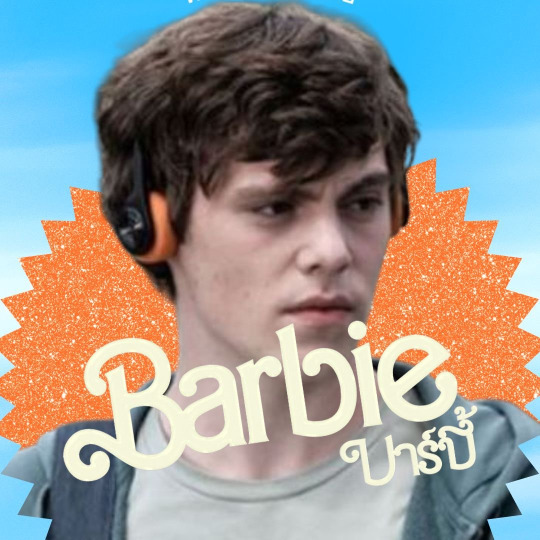
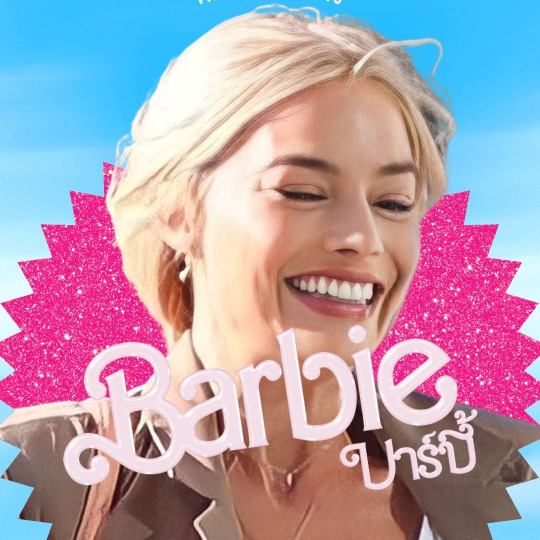

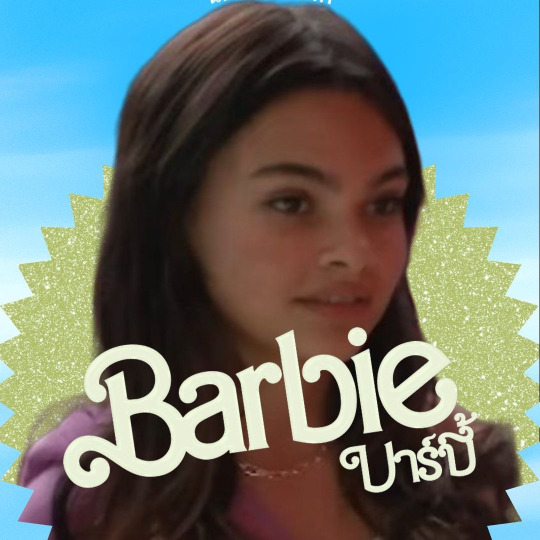
W|W - Barbie, Gloria, Sasha
M|M - Ken, Danny, Donny
#barbie 2023#barbie film#barbie#gloria#barbie ken#danny#barbiegloria#Kendanny#I'm making gay with Middle Age agenda#ryan gosling#giovanni ribisi#margot robbie#america ferrera#jack champion#ariana greenblatt
4 notes
·
View notes
Text
BARBIE IN GAY ERA
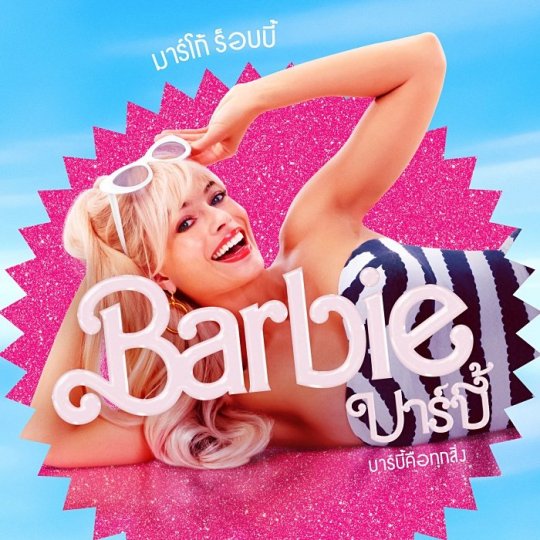

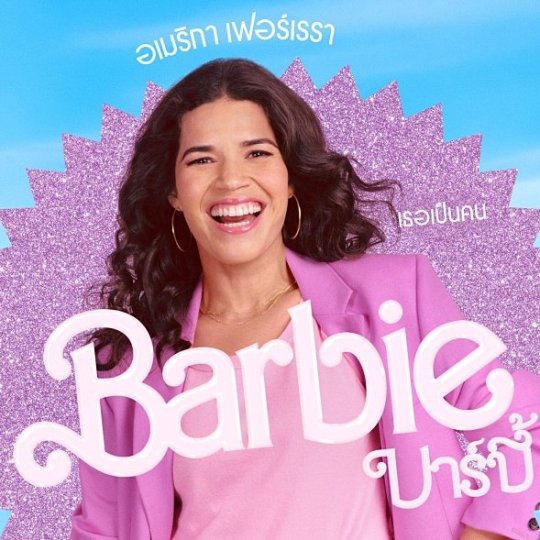
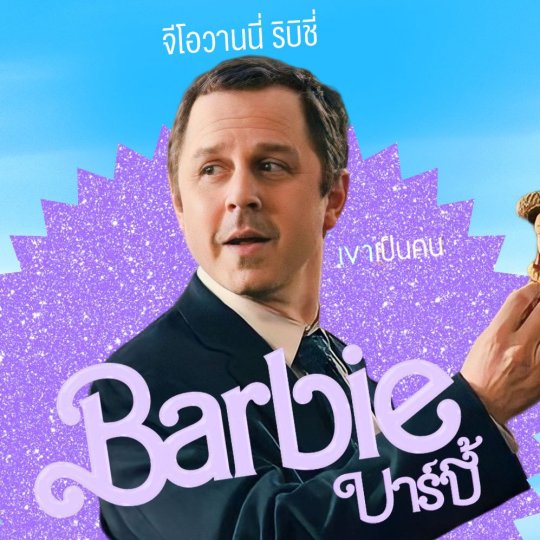
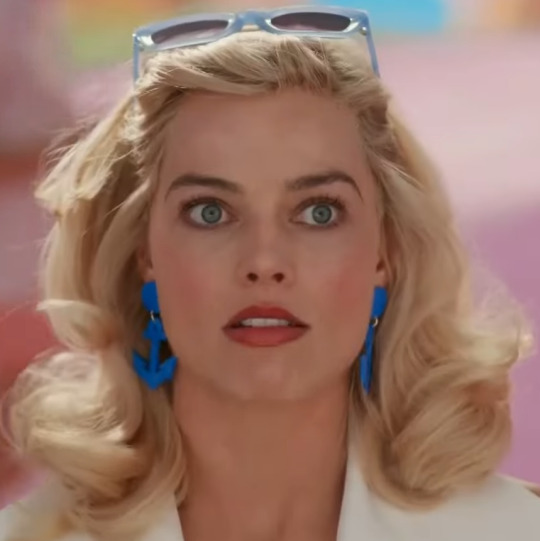


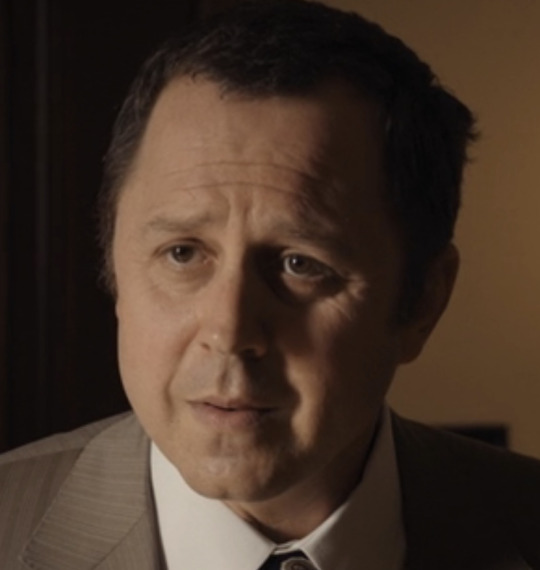
#barbie 2023#barbie film#barbie#gloria#barbie ken#dan#barbiegloria#Kendan#I'm making gay with Middle Age agenda#ryan gosling#giovanni ribisi#margot robbie#america ferrera
3 notes
·
View notes